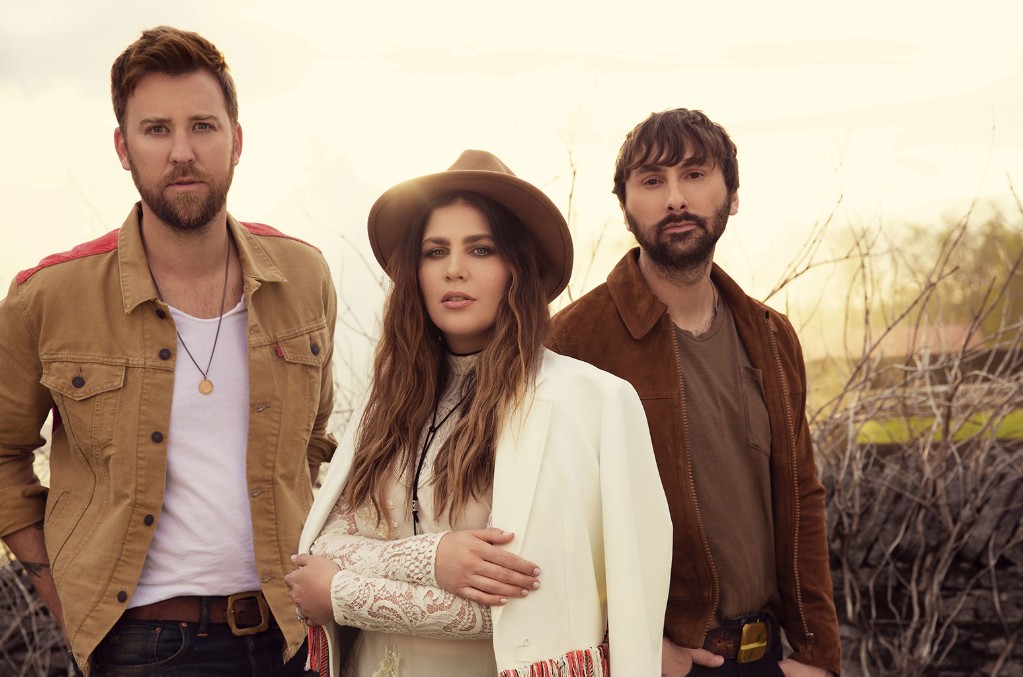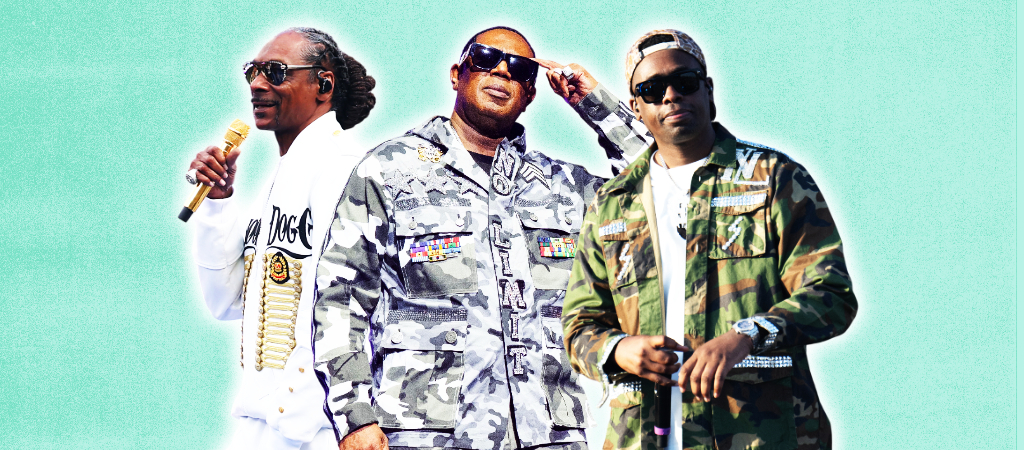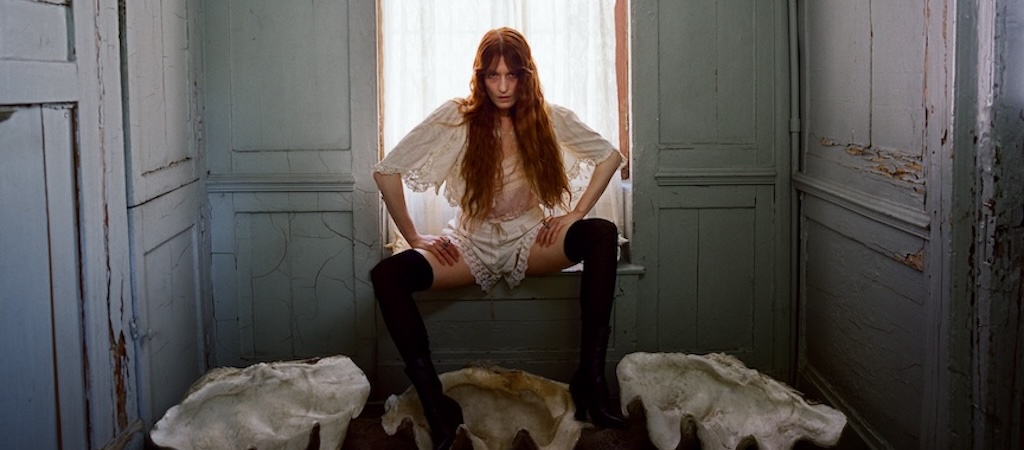Intellectual property attorneys say the country act may have a good case for using its longtime nickname.
There is only one Beatles for a reason. Acts rarely, if ever, share a name. And although Seattle-based blues singer Anita White believes that the country trio formerly known as Lady Antebellum is trying to “erase” her by adopting the more culturally appropriate moniker Lady A — which has been White’s stage name for more than three decades — intellectual property experts say the Nashville group likely has the upper hand in a new lawsuit because of a trademark filing from 10 years ago.
On June 11, the Nashville act announced its name change to shed the pre-Civil War association with slavery implied in the word Antebellum — meaning “before the war” — drawing a swift response from the 62-year-old Black singer, who said she has used the Lady A name since 1987.
“It’s not right that they can come and decide that they want to use this name and take it from me, because now it feels like another knee on my neck,” she told CBS affiliate WUSA in Washington, D.C., a reference to the police-related death of George Floyd, who died in May after a white Minneapolis officer held his knee on Floyd’s neck for nearly nine minutes. After talks between White and the band broke down, the country trio — Hillary Scott, Charles Kelley and Dave Haywood — filed a lawsuit in Nashville on July 8 claiming White’s team delivered an “exorbitant monetary demand” of $10 million to turn over the trademark rights to the name.
In their lawsuit, the bandmates are neither asking for money, nor are they attempting to stop White from using the name. Instead they are seeking an agreement to share it. (White says $5 million would be to rebrand herself, should she have to change her name, and the remaining $5 million to a racial equality charity.)
So who gets to use the name? According to veteran intellectual property rights lawyers contacted by Billboard, the issue is complicated, but appears to favor the country group.
The lawsuit claims that the trio has used Lady Antebellum and Lady A interchangeably since its formation in 2006 — and applied to register Lady A for various entertainment purposes with the U.S. Patent and Trademark Office in 2010, gaining the three registrations for that nickname in July 2011 with no opposition. Their suit also claims that the original Lady A has never applied to trademark the name. An attorney for White did not respond to requests for confirmation on whether she ever applied for a trademark on the name, but a source tells Billboard that she has not, but believes her decades of usage grant her the right to the name.
Attorney Brian Caplan of Reitler, Kailas & Rosenblatt LLC tells Billboard that name sharing — as the group suggests both parties do — is difficult. Unlike the pre-internet days when regional acts could protect their names in the geographic areas in which they were most well-known and multiple performers could ply their trade under the same names, it’s much harder to make the case for two acts to share a name when the internet makes music and videos globally available to anyone at any time.
“You’re going to have commercial exploitation and dissemination of your stuff all around,” says Caplan, who has no firsthand knowledge of the case, but was speaking based on his decades of experience working with musical artists and labels. “Usually, the first [to use a name] systematically and continuously will have priority over a second comer. But you also have to show the breadth of how you’ve been using it, so it becomes a bit of a ‘pissing match.'”
Caplan says part of the issue hinges on whether Lady Antebellum’s use of the nickname Lady A was common knowledge and the group publicly advertised or promoted themselves under that name. “Simply having a nickname is probably not enough,” he says. “Usually you have one name you use to build up good will, but not two.”
He cites The Beatles, who were colloquially known by the Fab Four, but would likely not have had protection for that name because people outside of the group coined that nickname and the group did not tour under that name or use it in the marketplace. In the Lady A suit, the trio includes a page from its website in 2008 that cites the band by the nickname, as well as several other references to the band as Lady A through the years.
The biggest impediment for White, according to intellectual property lawyer Oren Warshavsky, partner at Baker & Hostetler LLP, is the passage of time. Since the band Lady Antebellum alleges in the complaint that it has been using Lady A on “goods and services” since 2006-2007, that could be proof that the two names have co-existed without causing confusion among consumers, he says. “If the fans of the two acts are confused, that could be an issue,” he tells Billboard. However, Warshavsky adds, “Based on [the numbers of listeners for each artist provided in the complaint] it doesn’t appear like there’s a lot of overlap or confusion.” The filing alleges White had a Spotify following in the low hundreds before the lawsuit while Lady Antebellum has more than 7 million followers on the streaming service.
Because it does not appear that White ever secured a trademark on the name, Caplan suggests it’s possible her team believes she has the right to it through “prior usage” in the music space. However, both attorneys say that White’s argument is weakened because the band applied for the Lady A mark a decade ago and has used it with no prior legal objection by White. Caplan says if he was representing the original Lady A he’d seek to show a “decent amount of usage” proving that she’s been seen and heard by a reasonably large number of people.
This could create solid grounds to launch a battle over the rights in the Trademark and Patent Office. But that might be a problem for the singer, if it comes down to a popularity contest against a world-famous, chart-topping act. Aside from her touring and album releases, according to the lawsuit, White had only 166 monthly Spotify listeners prior to Lady Antebellum changing its name. (She currently has more than 10,000 monthly listeners and roughly that many individual streams for her most popular song, “That Man.”)
The band Lady A, meanwhile, has more than 7 million monthly listeners on the service and its most popular song, “Need You Now,” has racked up more than 171 million listens (along with No. 1s on Billboard’s Hot Country Songs and Adult Contemporary charts, as well as a No. 2 on the Hot 100). But despite any new recognition this conflict has caused, White told Billboard in a statement last week she feared the long term consequences. “My fans used to be able to listen to my music on streaming services; now they struggle to find me,” she said in a statement. “Due to Lady Antebellum’s massive rebranding efforts, Lady Antebellum has erased me from every platform.”
Warshavsky says that because the country group applied for the trademark in 2010 and it was published for opposition that year and again the next and there was no opposition from White on record, and that the group’s registration of the name was acknowledged as “incontestable” by the Trademark Office in June 2017 (according to the suit), there are “very few grounds” to challenge it at this point.
“Whether her fear is correct or not, it’s fair to think that White fears the overwhelming majority of people will come to think of her music as a footnote and that she’ll lose her name and the good will she’s developed,” says Warshavsky, noting that it’s possible White also fears that fans checking for her concert schedule might Google her name and not see any results for the blues singer on the first, second or third page and could potentially lose track of her.
A spokesperson for the Trademark and Patent Office would not comment on applications or registrations, but it’s worth noting that while two entities can, hypothetically, have the same trademark, it is very unlikely that they could use it in the same category of goods and services. It’s notable that Spotify lists at least two other acts called Lady A:, a pop singer and a gospel singer, whose albums are erroneously listed alongside White’s on the Lady A artist page.
A spokesperson for the band Lady A referred to the legal filing when asked for comment by Billboard, while the representative for White did not return multiple requests for comment at press time, including queries as to whether White planned to file her own suit.



